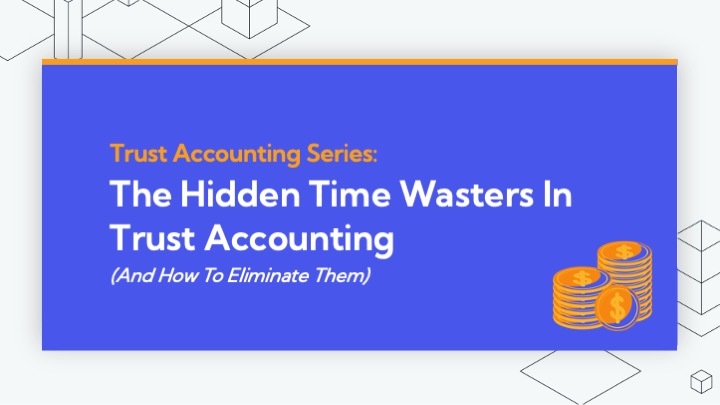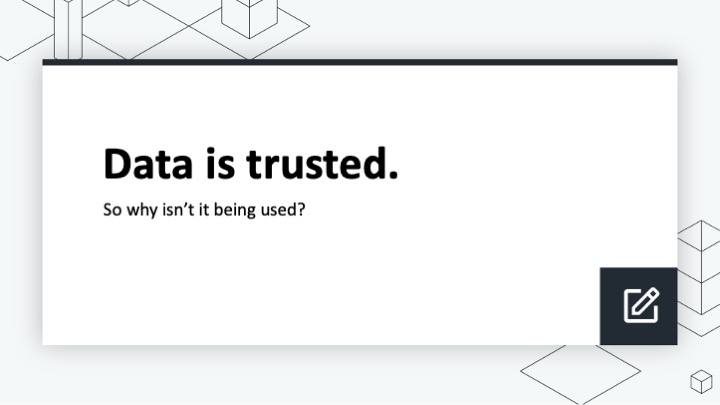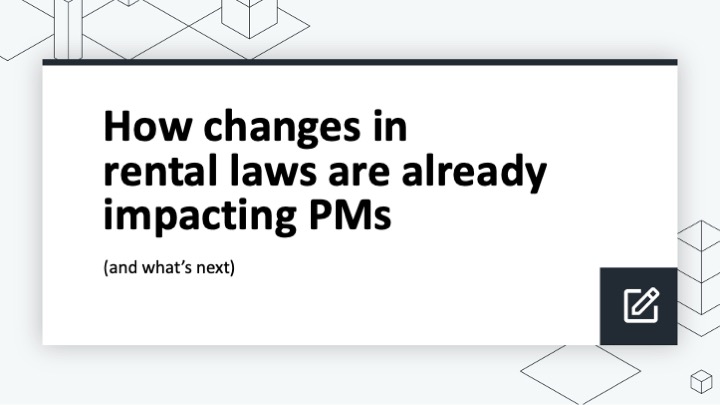If you’ve ever felt like trust accounting takes up more hours in your day than it should, you’re not alone.
Many property managers find themselves stuck in a cycle of repetitive tasks, corrections, and chasing missing information that slowly eats away at their time.
The tricky part is that these time traps often go unnoticed... until you’re overwhelmed and behind schedule.
Read on as we uncover some of the most common hidden time traps in trust accounting and offer practical steps to help you work smarter, not harder.
Common time wasters in trust accounting
Here are some of the biggest culprits stealing your time every day:
- Manual data entry in multiple systems: Entering payment information or transaction details more than once. For example, first in a spreadsheet, then again in your trust accounting software wastes time and increases the chance of errors.
- Fixing errors caused by rushed receipting: When payments aren’t recorded promptly or accurately, you spend extra time tracking down missing funds, reallocating payments, or correcting typos.
- Chasing unclear or missing payment details: Tenants or landlords sometimes send payments without correct references, or payment information is incomplete, requiring back-and-forth communication to clarify.
- Delayed reconciliations leading to backlog: Waiting too long between reconciliations means discrepancies pile up, making audits and reports much more time-consuming.
- Manual calculations and reporting: Spending hours calculating fees, commissions, or preparing reports by hand instead of using automated tools.
How to save time and stay compliant
The good news is that many of these issues can be tackled with straightforward changes:
- Automate receipting and payment processing: Use property management software that can import bank transactions automatically and match them to tenant payments. This eliminates duplicate data entry and reduces errors.
- Standardise your processes: Develop clear, step-by-step workflows for your team to follow when handling payments, receipts, and reconciliations. Consistency reduces mistakes and speeds up training new staff.
- Schedule regular reconciliations: Instead of leaving reconciliations until the end of the month, aim for weekly or daily checks. Smaller, frequent reviews catch problems early before they snowball.
- Improve communication templates: Have standard email templates ready for tenants or landlords to request missing or incorrect payment details. Clear, polite, and consistent communication saves time and avoids confusion.
- Leverage software reporting tools: Choose property management systems that generate owner statements and compliance reports automatically, reducing manual effort. Quick note: Reapit PM does this!
- Train your team regularly: Make sure everyone handling trust accounts knows the best ways to avoid errors and streamline workflows.
Why cutting down on time traps matters
Saving time in trust accounting isn’t just about making your workday easier, it also impacts accuracy and compliance.
When you’re not constantly fixing avoidable mistakes, you reduce the risk of penalties and audit issues.
Plus, freeing up your time means you can focus on other important areas, like tenant relationships and property management tasks that grow your business.
The takeaways
Trust accounting can be complex, but falling into hidden time traps doesn’t have to be part of the process.
By spotting these common pitfalls and taking proactive steps to eliminate them, you’ll improve efficiency, reduce stress, and keep your trust accounts compliant without the usual headaches.
Working efficiently with the right tools, means fewer late nights and a smoother workflow. And that’s a win for everyone involved - you, your landlords, and your tenants.





.png)
